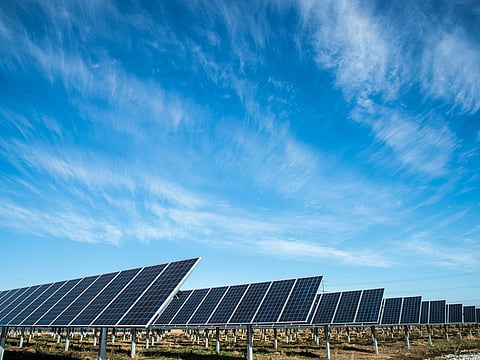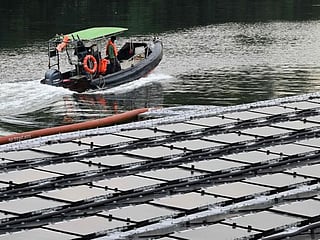Gulf economies must be on same page with renewables
Future inter-connectivity is what they should aim for as they did with power grid

The GCC countries are steadily moving towards a solid base for their renewable energy ambitions - which is impressive owing to the speed of this shift in the energy mix. And yet, these efforts have raised questions about their interest in alternative energy sources given that they still possess such vast resources in oil and gas.
However, this is not the case for those who are familiar with the GCC experience in establishing the infrastructure necessary for sustained growth over 50 years. They have built large and multiple infrastructure assets covering everything from electricity to water, ports and airports, and telecommunications, some of which have become global hubs.
It is true that having accumulated such experiences on their development path is exceptionally important to ensure future advances. But experience also constitutes a basis for launching successful projects and strategies thanks to the expertise accumulated and having the human capital capable of running these.
The need of the moment is diversify energy sources and provide supplies at competitive prices. This will certainly lead to boosting diversification.
It is a fact that the developing alternative energy sources clearly does not scare the GCC states, and constitutes an additional incentive for them to join others advanced economies developing such resources. This is part of concerted efforts to be ready for a post-oil period.
Still have uses
A question arises here as to the approaches adopted to tap renewable energy. It relates to obtaining renewable energy sources at reasonable prices, which will lead to reducing the environmental pollution in the GCC countries and contribute to supporting global efforts in this regard, i.e., the Paris climate agreement.
At the same time, it is possible to increase the use of oil and gas reserves as feedstock for a variety of industries such as petrochemicals and fertilizers. It is against this backdrop that new projects recently approved to develop alternative and renewable energy should be viewed.
In Saudi Arabia, 50 per cent of electricity will be produced from renewable energy by 2030, as the Kingdom moves towards localizing technologies and preparing qualified cadres capable not only of managing these facilities but also developing their own tech advances.
This approach also seeks to engage the private sector, in yet another new initiative that was not part of previous infrastructure development planning.
Connectivity push
In addition to establishing a factory and constructing the largest ‘farm’ for solar energy cells, there are projects to produce hydrogen in Neom city, as well as those announced by Aramco and Sabic.
In the UAE, projects such as the Mohammed bin Rashid Solar Park, which is in its fourth phase, aim to be the biggest such to produce solar energy. There’s another one in Abu Dhabi, which has also begun to produce electricity using nuclear reactors and which will raise the country’s dependence on renewable energy by 50 per cent.
These are just a few instances of the Gulf’s well thought out approach, which is expected to gain further momentum, with Saudi Arabia and the UAE leading the way. Other GCC countries need to quickly take similar steps and approve similar projects they have already spoken about.
All efforts to integrate the Gulf projects in renewable energy – along the lines of the power grid connection - would contribute to sustainable availability and consumption of electricity and at reduced costs. This is an experience worth building upon.
- Mohammed Al Asoomi is a specialist in energy and Gulf economic affairs.









